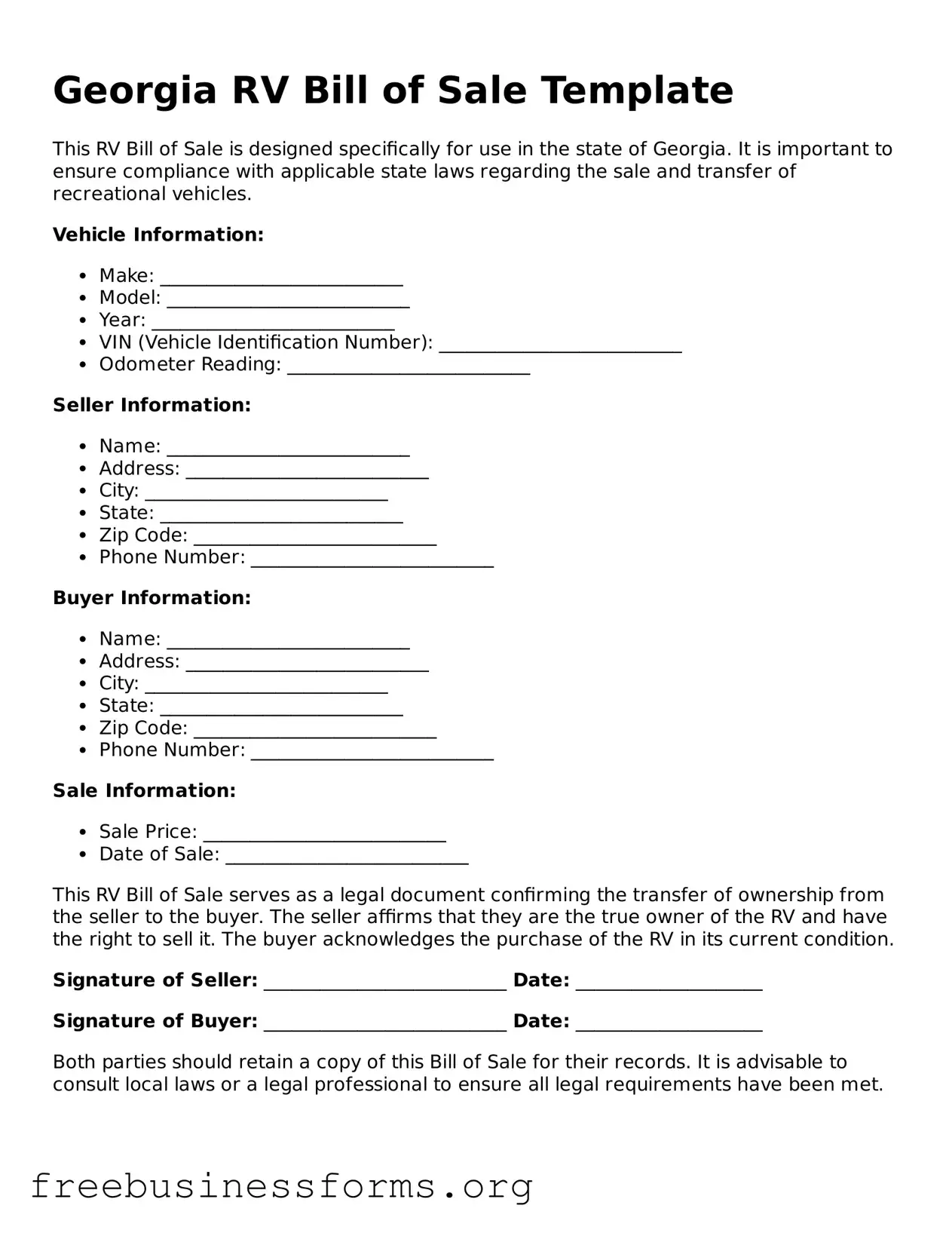Blank RV Bill of Sale Template for Georgia
The Georgia RV Bill of Sale is a legal document that serves as proof of the sale and transfer of ownership of a recreational vehicle in Georgia. This form outlines essential details about the transaction, including information about the buyer, seller, and the RV itself. Understanding this document is crucial for ensuring a smooth and legally compliant transfer of ownership.
Open Form Here

Blank RV Bill of Sale Template for Georgia
Open Form Here

Open Form Here
or
↓ PDF File
Quickly complete this form online
Complete your RV Bill of Sale online quickly — edit, save, download.